This is the second blog in the series relating to the passing of accounts of a representative of an estate. Please see our first blog that discusses the duty of a personal representative to pass their accounts and the purpose of the passing of accounts more generally.
Reference to the Registrar for the Passing of Accounts
The personal representative of an estate is required to present a full accounting of the estate’s assets to the beneficiaries. In some cases, this accounting must be formally presented before the court. When this is necessary the personal representative can either apply to pass the estate’s accounts or be compelled to do so by the beneficiaries. In both cases, an application is brought to the court for an order that the passing of accounts is addressed in a separate hearing called a reference to the registrar or a registrar’s hearing.
Passing of Accounts by Personal Representative
In all cases, the personal representative must represent their accounts to the beneficiaries. If all of the beneficiaries approve the personal representative’s accounts, then there is no need to apply to the court to formally pass the accounts at a registrar’s hearing. Registrar’s hearings for the passing of accounts are necessary in cases where there is a dispute as to the accounts or the personal representative’s remuneration, or if the beneficiaries are unable to consent to the accounts due to reasons of legal disability or if they are minors.
In cases where the beneficiaries will not approve the accounts, then typically the personal representative has to have their accounts reviewed by the court. The passing of the accounts by the court serves three purposes. Firstly, the court’s approval absolves the personal representative of liability in connection with the accounts. Secondly, after getting the court’s approval, the personal representative is free to take their compensation from the estate. Unless otherwise agreed or set out in the will, the amount of the personal representative’s remuneration is determined by the court. It is a breach of trust for the personal representative to take their compensation before the beneficiaries consent to the accounts or the accounts is formally passed. If they do the court may require them to repay the estate with interest. Finally, the passing of accounts is required to approve the personal representative’s distribution of the estate.
Request for the Passing of Accounts by Beneficiaries
The beneficiaries can also apply to the court to have the accounts of the personal representative passed before the registrar. A beneficiary’s costs for participating in the passing of accounts are usually payable out of the estate in most cases. However, if a beneficiary unreasonably objects to the personal representative’s accounts or forces a passing of accounts where it is not necessary, then it is open to the court to order special costs against that beneficiary. Any conduct of the beneficiary that unnecessarily lengthens the hearing could also result in a costs award against that beneficiary.
Pre-Hearing Conference
A pre-hearing conference ahead of a registrar’s hearing is mandatory for hearings that are scheduled for a half-day or more depending on the registry location. However, it is also open to the parties to request a pre-hearing conference to ensure that they are ready to proceed by the hearing date.
The purpose of a pre-hearing conference is to define the issues that will be before the registrar and for the registrar to make directions regarding the procedure, such as how documents will be produced, which witnesses should be called, and how they are to give evidence, as well as any other matter that may assist in the just and efficient determination of issues. The evidence to be presented may also be reviewed at the pre-hearing conference, as well as the settling of information to be provided prior to the hearing. The hearing date will also be set at this time.
The absence of written submissions means that good communication between the parties ahead of the hearing is necessary. The pre-hearing conference should address how parties are to conduct themselves in the weeks leading up to the hearing. This means seeking directions as to the exchange of documents and the organization and forms of evidence.
The party that filed the appointment requesting the hearing must also file a hearing record one day before the hearing. The pre-hearing conference can further address which documents should be included in the hearing record or exchanged between the parties prior to the hearing. The parties should also work together to decide which documents are likely to be exhibited in the hearing as these need to be exchanged one week prior to the hearing. Any documents relied on at the hearing should be included in a book of documents prepared by the parties and in addition to the hearing record.
The Registrar’s Hearing
A hearing before the registrar is conducted in the same manner as a trial. The parties or their counsel will introduce themselves after the registrar has made a brief statement as to the scope of the hearing. Counsel for each party will prepare an opening to outline their client’s position and state any objections to the intended evidence before it is led. The party that requested the hearing will then present its case first, followed by the opposing party. It is open to the registrar to ask questions throughout the hearing.
The parties will usually give evidence orally, and they can also make reference to the affidavits in the hearing record. Witnesses can be cross-examined and any documents produced by them are marked as exhibits and retained by the registrar. It is important for counsel to prepare the parties for examination-in-chief and cross-examination by anticipating the questions they will be asked. Adequate preparation ahead of the hearing is important, especially because witnesses will not be able to discuss these matters with counsel during breaks in cross-examination.
At the conclusion of the hearing, the registrar will state the results of the hearing and provide them to each party. This can be done in a certificate with or without reasons, or a report and recommendation. In some cases, the outcome of a registrar’s hearing will need to be confirmed by the court on application by the party that requested the hearing.
Without good preparation, you run the risk of having a hearing adjourned or costs awarded against you at the passing of accounts. If you are a beneficiary or personal representative that needs to prepare for a passing of accounts hearing you should consult an experienced lawyer for assistance. To contact one of our estate litigation lawyers, call McLarty Wolf at 604-687-2277 or send us an email through our online contact form.





You must be logged in to post a comment.